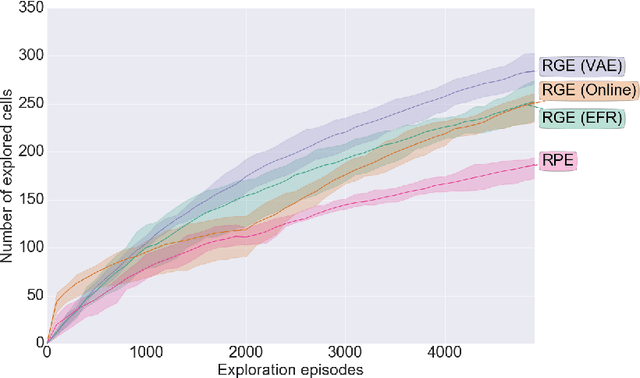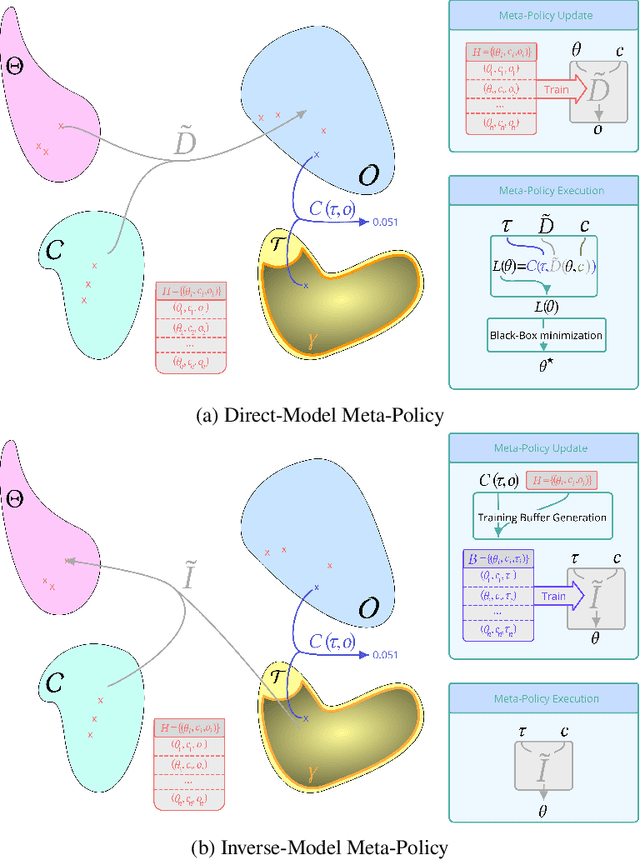Autonomous Goal Exploration using Learned Goal Spaces for Visuomotor Skill Acquisition in Robots
Paper and Code
Jun 10, 2019



The automatic and efficient discovery of skills, without supervision, for long-living autonomous agents, remains a challenge of Artificial Intelligence. Intrinsically Motivated Goal Exploration Processes give learning agents a human-inspired mechanism to sequentially select goals to achieve. This approach gives a new perspective on the lifelong learning problem, with promising results on both simulated and real-world experiments. Until recently, those algorithms were restricted to domains with experimenter-knowledge, since the Goal Space used by the agents was built on engineered feature extractors. The recent advances of deep representation learning, enables new ways of designing those feature extractors, using directly the agent experience. Recent work has shown the potential of those methods on simple yet challenging simulated domains. In this paper, we present recent results showing the applicability of those principles on a real-world robotic setup, where a 6-joint robotic arm learns to manipulate a ball inside an arena, by choosing goals in a space learned from its past experience.
 Add to Chrome
Add to Chrome Add to Firefox
Add to Firefox Add to Edge
Add to Edge